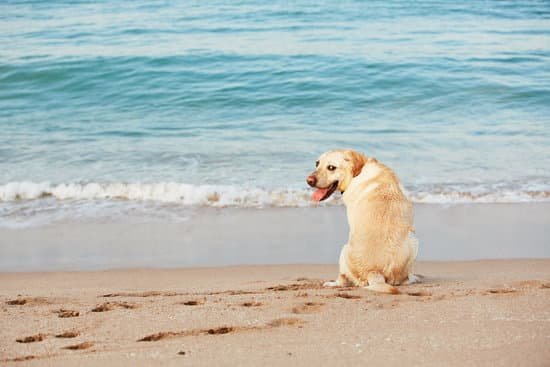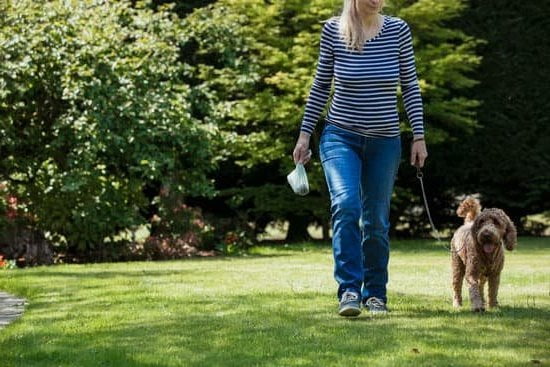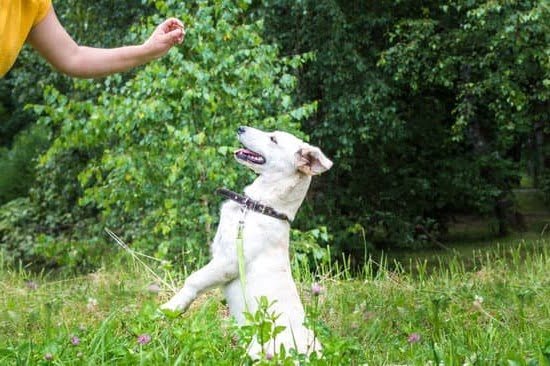Can you train an older dog to pee outside? Training an older dog to pee outside comes with unique challenges, but with the right techniques and strategies, it is definitely possible. In this article, we will explore the importance of proper toilet training for older dogs, assess potential health issues or limitations they may have, and provide tips for addressing behavioral and psychological factors in their training.
As dogs age, they may experience changes in physical abilities and cognitive function that can impact their ability to learn new behaviors. It’s crucial to understand these challenges in order to effectively train an older dog to pee outside. By acknowledging the specific needs of older dogs and tailoring our training approach accordingly, we can set them up for success and improve their overall well-being.
In addition to discussing the practical aspects of toilet training for older dogs, we will also touch on the psychological and emotional factors that play a role in their learning process. Patience and consistency are key when working with older dogs, and positive reinforcement can make a significant difference in their willingness to learn new habits. Let’s explore the rewarding journey of training an older dog to pee outside.
Understanding the Importance of Proper Toilet Training for Older Dogs
As dogs age, they may experience changes in their ability to control their bladder and bowel movements. Proper toilet training for older dogs is essential to maintaining their quality of life and preventing accidents in the home. While some may believe that older dogs are unable to learn new tricks, the truth is that with patience and consistency, it is possible to train an older dog to pee outside.
Older dogs may face a variety of challenges when it comes to toilet training. They may have decreased muscle control, arthritis or other health issues that make it difficult for them to hold their bladder or signal when they need to go outside. Additionally, they may have established long-term habits from years of indoor urination that need to be broken.
It’s important for pet owners not to dismiss the idea of teaching an older dog new bathroom habits. With a positive attitude, dedication, and understanding the specific needs of an older dog, successful toilet training can be achieved. The key is to tailor the approach according to the dog’s individual needs and capabilities.
| Importance of Training | Challenges Faced by Older Dogs |
|---|---|
| Proper toilet training maintains quality of life | Decreased muscle control and health issues |
| Prevents accidents in the home | Established long-term indoor habits |
Assessing the Potential Health Issues or Limitations of Older Dogs
As dogs age, they may experience certain health issues or limitations that can make it more challenging to train them to pee outside. It’s important for dog owners to understand and assess these potential issues in order to tailor their training approach accordingly. Here are some common health issues and limitations that can impact an older dog’s ability to be trained:
- Joint pain or arthritis: Older dogs may suffer from joint pain or arthritis, which can make it difficult for them to move around comfortably, especially when it comes to going outside to pee.
- Incontinence: Some older dogs may develop urinary incontinence due to decreased bladder control, leading to accidents inside the house.
- Cognitive decline: As dogs age, they may experience cognitive decline, leading to forgetfulness or confusion, making it harder for them to remember their training.
Despite these challenges, it is still possible to train an older dog to pee outside with the right approach and understanding of their individual needs. By taking into consideration any health issues or limitations they may have, owners can adjust their training techniques and strategies accordingly.
It’s important to consult with a veterinarian if you suspect that your older dog is experiencing any health issues that may affect their ability to be trained. A vet can provide valuable insights and recommendations on how best to address any health-related barriers to successful toilet training for an older dog.
Additionally, they can offer advice on managing any health conditions that may impact the training process. With patience and proper guidance, old age should not be a barrier in successfully training an older dog for outdoor peeing.
Techniques and Strategies for Training an Older Dog to Pee Outside
When it comes to training an older dog to pee outside, it’s important to understand that while it may be more challenging than training a younger dog, it is definitely possible. The key is to be patient, consistent, and understanding of the potential health issues or limitations that older dogs may face. With the right techniques and strategies, you can successfully train your older dog to pee outside.
One effective technique for training an older dog to pee outside is setting a regular routine. Older dogs thrive on consistency, so taking them out at the same times every day can help them understand when and where they should go potty. Additionally, using positive reinforcement such as treats or verbal praise when they do their business outside can encourage them to continue the behavior.
Another strategy that can be helpful is managing your older dog’s environment. This means minimizing indoor accidents by keeping a close eye on your dog and providing easy access to the outdoors. You can also use scent markers in designated potty areas outside to attract your dog and reinforce the idea that this is where they should go.
Furthermore, consider making adjustments based on your older dog’s individual needs. For example, if your dog has mobility issues or health concerns that make it difficult for them to hold their bladder, you may need to take them out more frequently. Understanding and accommodating these limitations can make the training process smoother and more successful.
| Techniques | Strategies |
|---|---|
| Regular routine | Setting specific times for outdoor potty breaks |
| Positive reinforcement | Using treats or praise to encourage desired behavior |
| Managing environment | Minimizing indoor accidents by providing easy outdoor access |
By utilizing these techniques and strategies tailored to the specific needs of older dogs, you can effectively train your furry friend to pee outside. Remember that each dog is different, so it’s important to be patient and adaptable in your approach. With time and dedication, even an older dog can learn new tricks.
Addressing Behavioral and Psychological Factors in Older Dog Training
Understanding the Challenges of Behavioral and Psychological Factors
Training an older dog to pee outside comes with its unique challenges, especially when dealing with behavioral and psychological factors. Older dogs may have developed certain habits or fears that can make the training process more difficult. Some older dogs may have a history of trauma or neglect, leading to anxiety or fearfulness that affects their ability to learn new behaviors.
Developing Trust and Bonding
When addressing these factors, it is crucial to prioritize building trust and bonding with your older dog. Patience, empathy, and understanding are key in gaining your dog’s trust, especially if they have experienced trauma in the past. Creating a safe and nurturing environment for your older dog can help alleviate any fears or anxieties they may have, making it easier for them to learn new behaviors such as peeing outside.
Positive Reinforcement and Gentle Correction
Using positive reinforcement techniques such as treats, praise, and rewards can help encourage your older dog to exhibit desirable behaviors. Additionally, gentle correction should be used when necessary, but it is important to be patient and understanding throughout the process. Harsh punishment or scolding < hould be avoided as it can exacerbate any existing fear or anxiety issues in older dogs.By addressing these behavioral and psychological factors in older dog training, you not only improve their chances of successfully learning to pee outside but also create a stronger bond with your furry companion.
Consistency and Patience
Training an older dog to pee outside can be a challenging but rewarding process. One of the key factors in successfully training an older dog is consistency and patience. Older dogs may have established habits or health issues that make it more difficult for them to learn new behaviors, so it’s important to approach the training process with understanding and perseverance.
Consistent Schedule and Routine
Creating a consistent schedule and routine for your older dog can help with toilet training. Take your dog outside at the same times every day, such as after meals and before bedtime. This routine will help your dog understand when it’s time to go outside to pee and can aid in reinforcing this behavior.
Patient Approach
It’s crucial to remain patient during the training process with an older dog. Some senior dogs may take longer to learn or may have accidents indoors due to health issues or physical limitations. It’s important not to scold or punish your older dog for accidents but instead offer encouragement and support as they adjust to the new routine.
Adaptability and Flexibility
Being adaptable and flexible in your approach to training an older dog is also key. Understand that your older dog may have different needs compared to a younger, more physically capable dog. Be open to adjusting your training methods based on your dog’s individual abilities and limitations, as this will contribute to a more successful training experience.
Celebrating Small Victories
Training an older dog to pee outside can be a challenging task, but it is definitely possible with the right techniques and mindset. One important aspect of this process is celebrating small victories through positive reinforcement and encouragement. By acknowledging and rewarding progress, you can effectively motivate your older dog to continue learning and adapting to new habits.
Here are some effective ways to celebrate small victories in training your older dog to pee outside:
- Use treats: When your older dog successfully pees outside, give them a treat as a reward. This positive reinforcement will create a positive association with going potty outside and encourage them to repeat this behavior.
- Give praise: Along with treats, praise your older dog enthusiastically when they pee outside. Use a cheerful tone of voice and pet them affectionately to show them how pleased you are with their accomplishment.
- Create a routine: Establishing a consistent routine for potty breaks can help your older dog understand when and where they are expected to go potty. When they follow the routine and pee outside, acknowledge their good behavior with positive reinforcement.
In addition to these methods, it’s important to remain patient and keep an optimistic attitude while training your older dog. It may take time for them to adjust to the new training, but by celebrating every step in the right direction, you can encourage and support them in making the transition to peeing outside successfully.
Seeking Professional Help
Finding success in training an older dog to pee outside can be a challenging endeavor. While many pet owners may have the time, patience, and dedication to work with their older dog on toilet training, there are instances where seeking professional help becomes necessary. Whether it’s due to the dog’s health limitations, behavioral issues, or the owner’s lack of experience in dog training, hiring a professional trainer can provide the guidance and support needed to achieve success.
One common reason to consider hiring a trainer for an older dog is when the pet has potential health issues or limitations that make traditional toilet training methods difficult. For instance, older dogs may suffer from arthritis or other mobility issues that make it painful for them to go outside frequently.
Additionally, certain medical conditions can cause incontinence, making it challenging for the dog to control their bladder. In these cases, a professional trainer with experience in working with elderly dogs can develop specialized techniques to accommodate the pet’s needs and ensure successful toilet training.
Another scenario where hiring a professional trainer is beneficial is when an older dog exhibits problematic behaviors that hinder the toilet training process. This could include anxiety-related accidents indoors, marking territory inside the house, or simply refusing to eliminate outside. A knowledgeable trainer can assess these behavioral issues and develop a personalized plan that addresses the root cause of the problem while providing effective solutions that promote outdoor elimination.
Conclusion
In conclusion, while training an older dog to pee outside may come with its challenges, it is definitely a rewarding and worthwhile journey. It is important for pet owners to understand the obstacles that may arise when training an older dog, as well as the significance of proper toilet training for their health and overall well-being.
Despite potential health issues or limitations, there are techniques and strategies that can be employed to successfully train an older dog to pee outside.
Consistency and patience are key factors in the process of training an older dog, and celebrating small victories through positive reinforcement and encouragement can make a significant difference. It’s essential for pet owners to address any behavioral or psychological factors that may be affecting their older dog’s ability to learn new habits.
Seeking professional help from a trainer can also be beneficial in some cases, especially if the pet owner is facing difficulties or challenges in the training process.
Ultimately, the journey of training an older dog to pee outside can be incredibly fulfilling for both the animal and the owner. With dedication, love, and perseverance, it is absolutely possible to successfully train an older dog in this aspect. The bond formed through this process can strengthen the relationship between pet and owner, leading to a happier and healthier life for their beloved furry companion.
Frequently Asked Questions
Is It Too Late to Train My Dog to Pee Outside?
It’s never too late to train a dog to pee outside, although it may take more time and patience with older dogs. Consistency, positive reinforcement, and a regular schedule can help in retraining an older dog.
Are Older Dogs Harder to Potty Train?
Older dogs can be harder to potty train due to potential health issues, set habits, and lack of previous training. However, it’s still possible with the right approach and understanding of the dog’s needs.
Can I Housebreak an Older Dog?
Housebreaking an older dog is doable with patience and consistency. Understanding the dog’s behavior, using positive reinforcement, and establishing a routine are essential in successfully housebreaking an older dog. Giving them time to adjust is also crucial.

Welcome to the blog! I am a professional dog trainer and have been working with dogs for many years. In this blog, I will be discussing various topics related to dog training, including tips, tricks, and advice. I hope you find this information helpful and informative. Thanks for reading!





